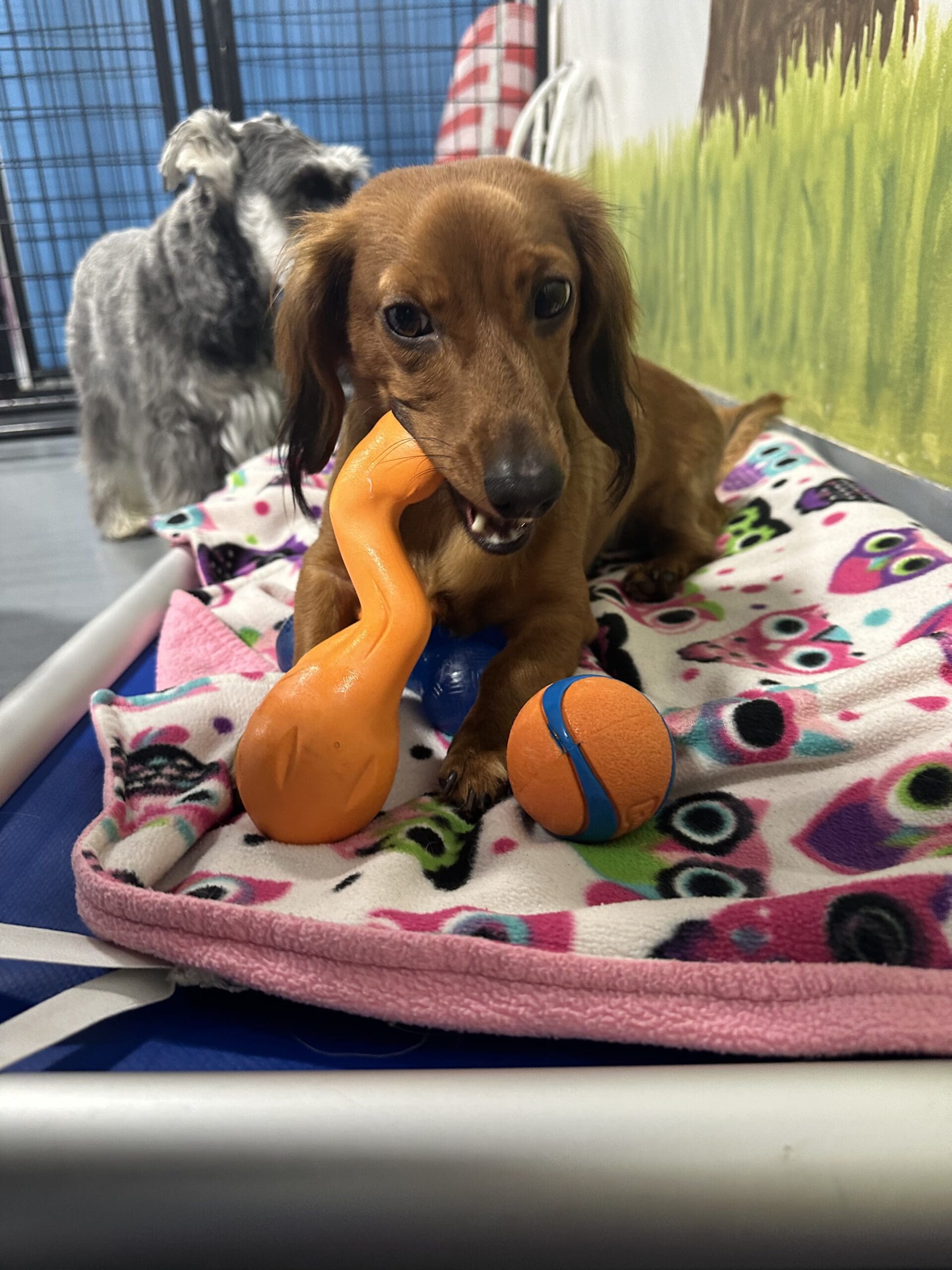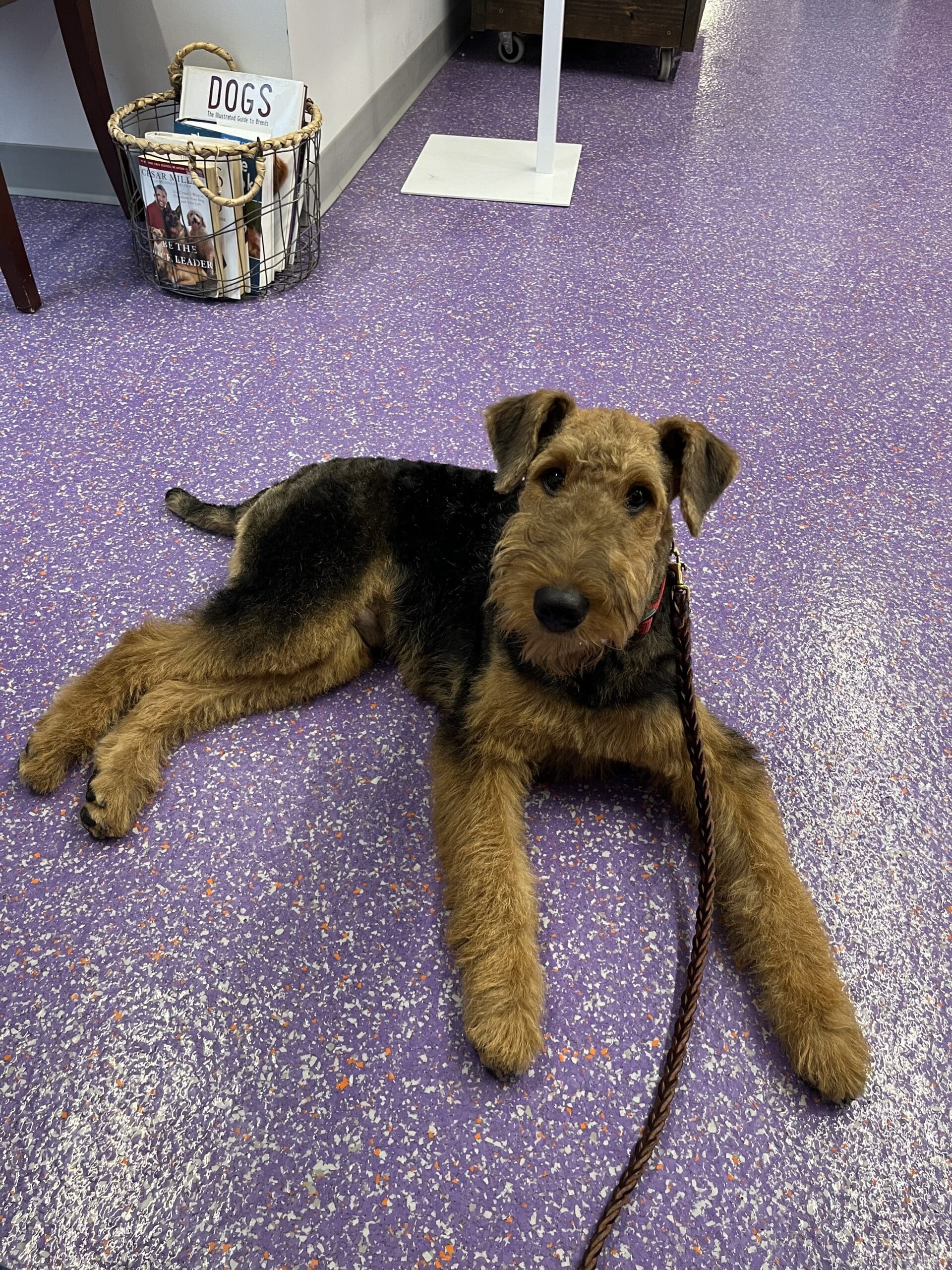Canine Influenza
The dog flu – what is it, how does it happen, & what can you do?

Canine influenza, also known as dog flu, is a highly contagious respiratory disease that can affect dogs of all ages, breeds, and health statuses. It is especially dangerous for senior dogs, puppies, and dogs with health problems. It is caused by the influenza virus, which can be spread through direct contact with an infected dog or with contaminated objects such as food and water bowls, toys, and bedding. Any dog coming in contact with another dog is at risk including those visiting dog parks, groomers, socializing with neighborhood dogs, or going to a pet care facility. It is readily transmissible when a dog barks, sneezes, or coughs.
Dogs with influenza are most contagious before they show any symptoms of illness making it difficult to determine if a dog is infected with the virus.
To make matters worse, twenty percent of infected dogs never show symptoms but are still contagious. The virus can live on hard surfaces for up to 48 hours, 24 hours on clothing or bedding, and 12 hours on skin.
The incubation period lasts 1 to 3 days. Depending on the flu strain, Dogs can spread the infection for up to 10-24 days. The symptoms of canine flu are similar to those of human flu. The most common symptom is coughing which can last up to 21 days. Additional symptoms include sneezing, fever, runny nose, lethargy, and loss of appetite.
In some cases, dogs may exhibit more severe symptoms such as difficulty breathing and may go on to develop pneumonia, which can be life-threatening if left untreated.
Prevention is crucial when it comes to canine flu. Vaccinating your dog is the most effective way to prevent the disease. There are currently two canine flu vaccines available: one for the H3N8 strain and one for the H3N2 strain. It is recommended that dogs receive both vaccines for full protection. However, at the time of this writing, there is a dog Flu Vaccine shortage in the United States.

In addition to vaccination, there are other steps you can take to prevent the spread of canine flu. If your dog is sick, keep them away from other dogs. If you encounter an infected dog, wash your hands thoroughly and change your clothes before interacting with your dog. Clean and disinfect any objects that may have come into contact with an infected dog.
To combat infectious diseases including Canine Flu, Pinnacle Pets has stringent policies and procedures in place to mitigate contagion including:
- Oversized HVAC system to pull in fresh air from outside with multiple air exchanges per hour;
- Ultraviolet lights in our ventilation system to kill airborne organisms;
- Veterinary hospital-grade disinfectants to sanitize our floors, kennels, play equipment, and other hard surfaces;
- Cleaning protocols for sanitization of indoor play areas and boarding suites;
- Veterinary standard vaccination policies;
- Sanitization of outdoor as well as indoor play areas;
- Sanitizer rinse for all dishes and toys to kill any remaining bacteria or viruses;
- Policies barring dogs exhibiting signs of illness into our facility; and,
- Policies to immediately isolate any dog exhibiting signs of illness from other dogs;
If you suspect that your dog has canine flu, it is important to consult with a veterinarian for proper diagnosis and treatment. Because Canine Influenza’s symptoms are similar to other viral illnesses, testing is required to determine if it is the flu or another disease such as Bordetella. Treatment may include supportive care such as fluids and rest and antiviral medications or antibiotics for complications such as pneumonia.
The dog flu is a serious disease that can affect any dog. However, with proper prevention measures such as vaccination and good hygiene practices, you can help keep your dog healthy and prevent the spread of the disease. If you have any concerns about canine flu or your dog’s health, consult with a veterinarian for guidance and advice.
